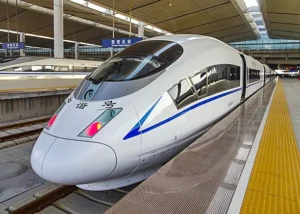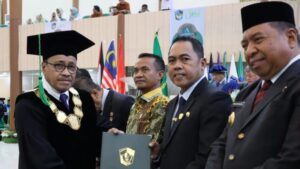Jakarta – The Indonesian stock market has been facing significant volatility in recent days, with the Jakarta Composite Index (IHSG) declining by more than 7% over the past week. As of the second trading session on Tuesday (February 11, 2025), the index dropped below the 6,500 psychological threshold, sparking concerns among investors. However, despite short-term turbulence, market experts and financial analysts emphasize that Indonesia remains a highly attractive investment destination due to its strong economic fundamentals and pro-growth policies.
Market instability has largely been driven by external global factors, particularly geopolitical tensions and economic policy shifts in major economies. With around 35% to 40% of investors in Indonesia’s capital market being foreign participants, their movements are often dictated by global sentiment. Uncertainties in international markets have resulted in capital outflows, affecting Indonesia and other emerging economies.
Oki Ramadhana, President Director of Mandiri Sekuritas, acknowledged the prevailing challenges but reassured investors that Indonesia’s economic foundations remain robust. Speaking at the Mandiri Investment Forum (MIF) 2025 press conference, he stressed that while investors react to short-term external factors, Indonesia’s long-term investment prospects remain highly promising. He pointed out that banking, finance, infrastructure, and consumer-driven sectors continue to exhibit strength, reflecting the country’s resilience.
Indonesia offers a business-friendly environment, underpinned by transparent regulations and legal certainty. These factors provide a level of security that allows investors to maintain confidence in their portfolios. Many foreign investors have opted to retain their holdings in Indonesia due to its sustained economic growth trajectory. The country’s growth story is particularly compelling, bolstered by the national agenda of President Prabowo Subianto, who has set an ambitious 8% GDP growth target.
This vision has encouraged domestic corporations to aggressively seek both organic and inorganic growth opportunities, ensuring continued expansion in key industries. Oki noted that Indonesian businesses are proactively positioning themselves for long-term success, making the market even more attractive for investors seeking growth-oriented opportunities.
Despite market fluctuations, foreign investors continue to view Indonesia as an appealing destination, recognizing its long-term stability, economic resilience, and progressive investment policies. Analysts remain optimistic that while short-term corrections are inevitable, the structural strength of Indonesia’s economy will continue to drive investment inflows.











